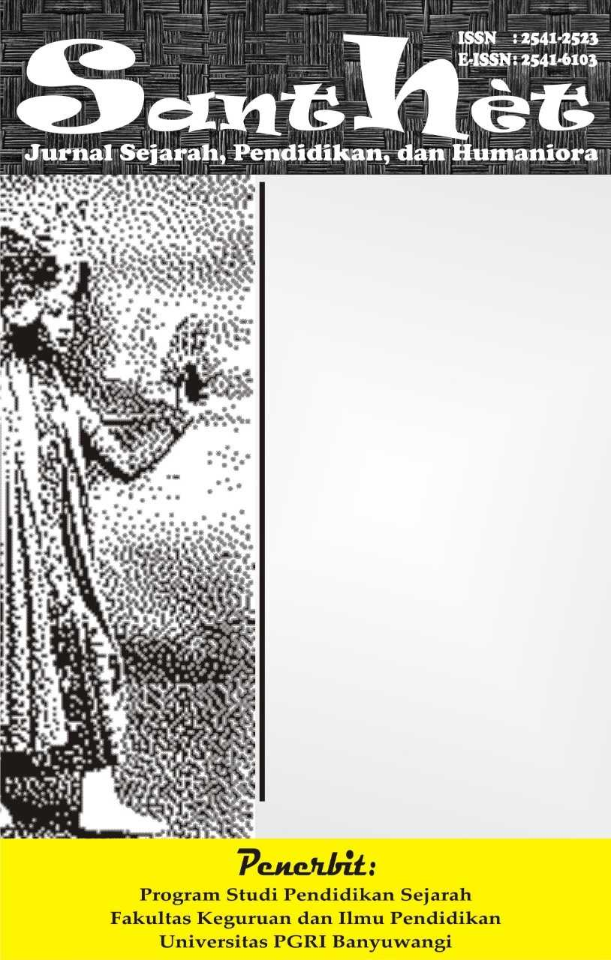Career Development as Part of Employee Competency Improvement Planning at the Regional Office of the Ministry of Law and Human Rights of North Sulawesi
DOI:
https://doi.org/10.36526/santhet.v8i2.4794Keywords:
Career Development, Planning, Competency, Regional Office of the Ministry of Law and Human RightsAbstract
This study aims to determine and analyze career development as part of employee competency improvement planning at the Regional Office of the Ministry of Law and Human Rights of North Sulawesi. The research method uses a research approach with a qualitative approach that focuses on career needs indicators, agency support, training, promotion, employee placement and career development. The study involved a total of 15 participants who provided information. Information was gathered from various sources, including direct observation, interviews, and reviewing documents. The process of analysing the information involved gathering, summarising, and presenting the data to draw conclusions. The findings indicated that career development was identified as a key strategy for enhancing the skills and competencies of employees. Agency support in terms of leadership and staffing support plays a role in providing direction, guidance, and new assignment opportunities, while staffing is tasked with developing training programs, performance evaluations, and helping employees plan their career paths clearly. Placing employees in the right positions not only improves individual performance, but also provides opportunities for employees to develop and lead in the future. Training serves as an important instrument in career development, especially in modifying employees' knowledge, skills and behavior. Periodic evaluation of employee performance and competence is essential in planning effective career development. Employee career development not only benefits the individual, but also contributes to the achievement of organizational goals. Well-developed employees will be able to make maximum contributions in supporting the organization's strategic tasks, such as improving legal services and protecting human rights. The findings of this study suggest that with the adoption of competency-focused career development strategies and strategic planning, the North Sulawesi Regional Office of the Ministry of Law and Human Rights has the potential to cultivate a workforce of highly skilled and dedicated individuals, ultimately leading to improved delivery of public services within the realm of law and human rights.
References
Fiedler, F. E. (1967). A Theory of Leadership Effectiveness. McGraw-Hill Series in Management.
Gulo, W. (2002). Metodologi Penelitian: Vol. viii (Issue 1). Gramedia Widiasarana Indonesia.
Husain, U., & Akbar, P. S. (2008). Metodologi Penelitian Sosial, Jakarta: PT. Bumi Aksara.
Luthans, F. (2011). Organizational Behavior. McGraw-Hill Irwin.
Moleong, L. J. (2016). Metodologi penelitian kualitatif (edisi revisi).
Pemerintah Republik Indonesia. (2017). Peraturan Pemerintah Nomor 11 Tahun 2017 Tentang Manajemen Pegawai.
Spencer, L. M., & Spencer, P. S. M. (2008). Competence at Work models for superior performance. John Wiley & Sons.
Super, D. E. (1957). The psychology of careers; an introduction to vocational development.
Tamalika, T. (2017). Analisis Pengaruh Rekrutmen dan Pengembangan Karir Terhadap Kinerja Karyawan Pada PT. Karyatama Saviera Palembang. Jurnal Desiminasi Teknologi, 5(2).
Wibisono, K. A., Supriono, S., & Sari, A. E. (2022). Pengaruh Kompetensi Dan Promosi Jabatan Terhadap Kinerja Karyawan Hotel Oria Jakarta Pusat. Transekonomika: Akuntansi, Bisnis Dan Keuangan, 2(1), 69–78.





























